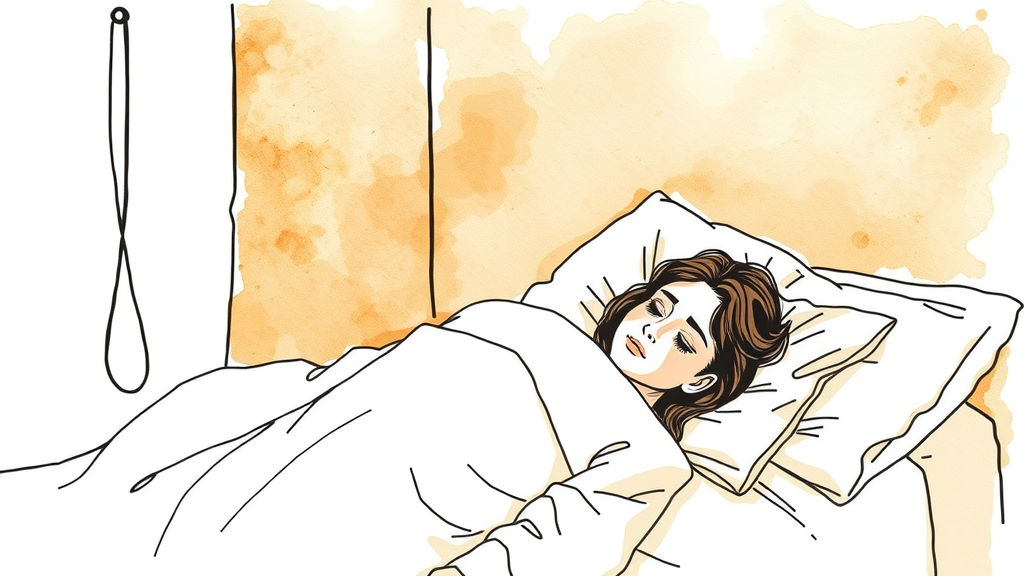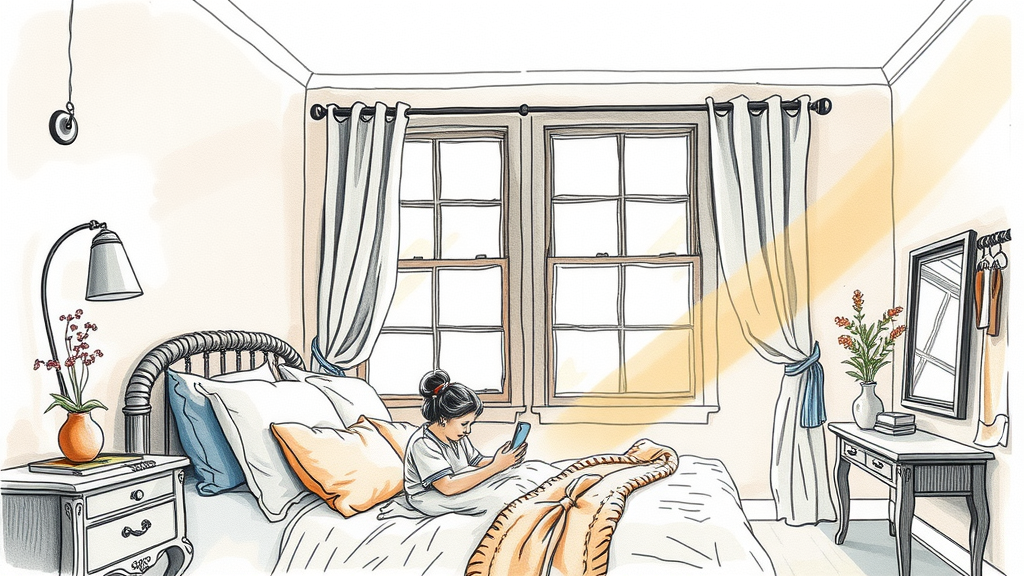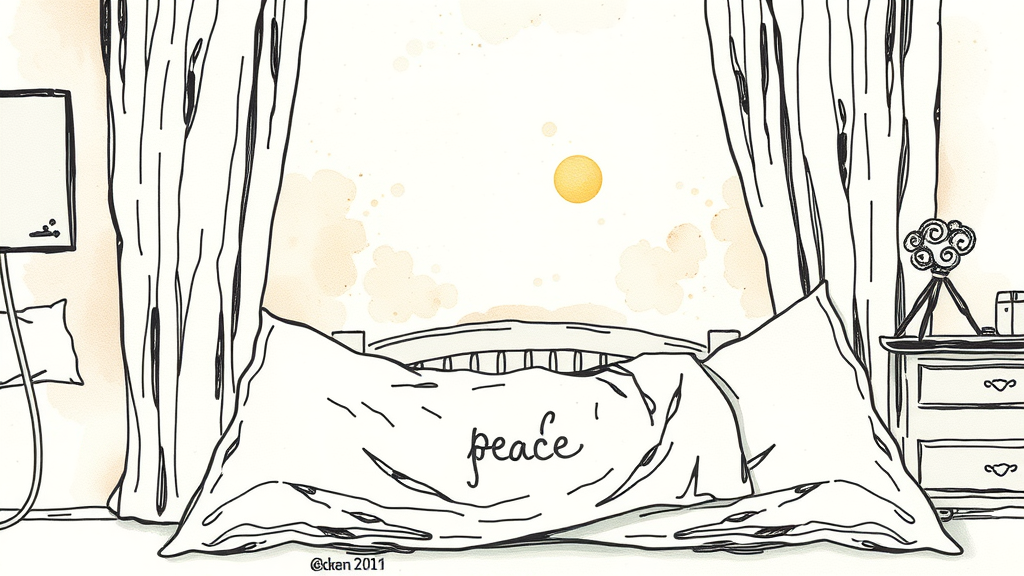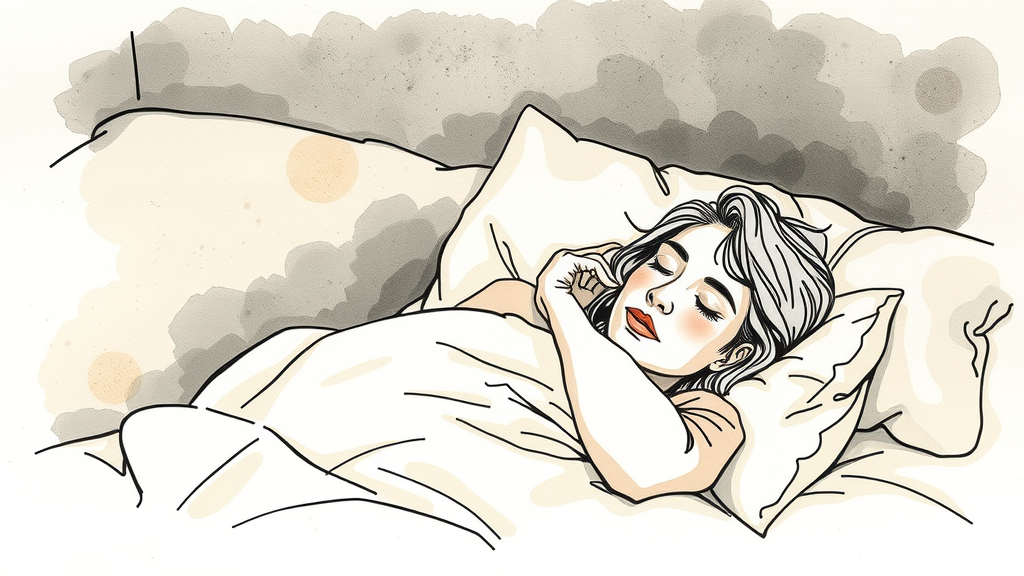· Don Schmidt · Guides · 15 min read
The Ultimate Guide to CBTI Sleep Therapy for Seniors
Discover how CBTI sleep therapy offers seniors a drug-free path to better sleep. This ultimate guide helps older adults find lasting relief from insomnia.
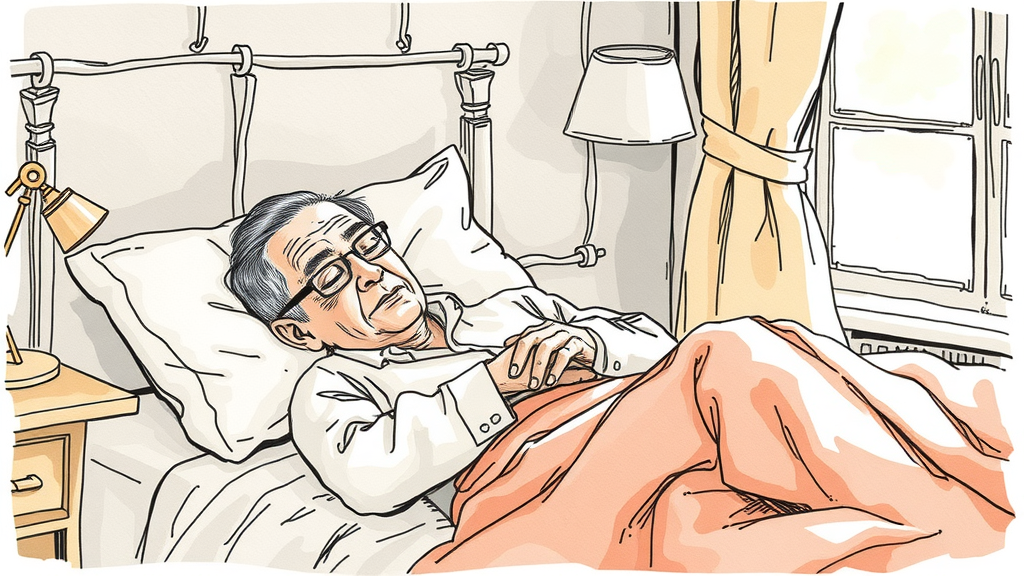
Why Sleep Changes with Age and the Need for a Solution
As we navigate the later stages of life, our sleep patterns often undergo significant shifts. What once felt like an effortless nightly ritual can become a frustrating battle against chronic insomnia, frequent awakenings, and persistent daytime fatigue. Many seniors attribute these struggles to a natural part of aging or resort to medication for relief. However, persistent poor sleep in older adults is not an inevitable consequence of getting older, nor should it always be managed with potentially risky pharmaceuticals.
Indeed, sleep disturbances, particularly chronic insomnia, can profoundly diminish a senior’s quality of life. The repercussions extend beyond just feeling tired; they can adversely affect mood, cognitive function (like memory and concentration), physical health, and overall independence. It’s a common misconception that older adults require less sleep. In reality, the fundamental sleep requirements for seniors remain largely the same—around 7-9 hours per night. The challenge lies not in the need for sleep, but in the ability to achieve consistent, restorative sleep.
This is precisely where CBTI sleep therapy emerges as a remarkably powerful, evidence-based, and highly effective drug free sleep treatment that is exceptionally well-suited for the unique needs of older adults. Cognitive Behavioral Therapy for Insomnia (CBTI) offers a comprehensive, holistic, and sustainable solution, empowering seniors to regain control over their sleep patterns without the often-undesirable side effects associated with sleep medications. This ultimate guide will explore what cbti entails, elucidate why it stands out as an ideal form of senior sleep help, and provide a clear pathway for you to embark on your personal journey toward truly refreshing sleep.
What is CBTI?
Cognitive Behavioral Therapy for Insomnia (CBTI) is far more than just a collection of generalized sleep tips; it is a structured, time-limited, and exceptionally effective therapeutic program meticulously designed to pinpoint and address the underlying cognitive (thought patterns) and behavioral factors that contribute to chronic insomnia. Unlike conventional quick fixes or reliance on medication, CBTI systematically helps you identify and modify the counterproductive patterns keeping you awake, replacing them with habits and beliefs that actively promote healthy, natural, and sustained sleep. It is widely recognized by medical and psychological communities as the gold standard treatment for chronic insomnia and consistently demonstrates superior, more enduring results compared to pharmacotherapy alone.
For an in-depth exploration of what is CBTI and to gain a comprehensive understanding of how does CBTI work in practice, we highly recommend consulting our foundational article: What is CBTI?.
At its core, CBTI is about systematically retraining your brain and body to establish a strong, positive association between your bed and bedroom environment exclusively with sleep (and intimacy), rather than with wakefulness, anxiety, or frustration. It equips you with practical tools and strategies to quiet a racing mind, significantly reduce pervasive anxiety about sleep, and ultimately establish a consistent, healthy sleep rhythm that aligns with your body’s natural clock.
Key Components of CBTI
CBTI is a multi-faceted and highly individualized approach, typically delivered over several structured sessions by a trained behavioral sleep therapist. While each component plays a distinct and crucial role, their synergistic combination is what contributes to CBTI’s remarkable efficacy:
- Sleep Restriction (or Sleep Consolidation): This often-misunderstood, yet profoundly effective, technique involves initially limiting the total amount of time you spend in bed. The primary objective is to create a mild, controlled state of sleep deprivation, which serves to significantly increase your biological sleep drive. This heightened drive makes falling asleep easier and promotes more consolidated, uninterrupted, and efficient sleep throughout the night. As your sleep efficiency demonstrably improves, your time allotted in bed is gradually and carefully extended by your therapist. This component is always closely monitored by a qualified professional to ensure both safety and optimal effectiveness, particularly for older adults.
- Stimulus Control Therapy: This cornerstone component of CBTI aims to systematically break any negative or unhelpful associations you may have developed with your bed and bedroom. The goal is to re-establish a strong and exclusive connection between your bed and the act of sleeping (or intimacy). This is achieved by strictly limiting all other non-sleep related activities (such as reading, watching TV, eating, worrying, or using electronic devices) to areas outside the bedroom. Key practical rules include:
- Only going to bed when you feel genuinely sleepy.
- Getting out of bed immediately if you find yourself unable to fall asleep within approximately 15-20 minutes.
- Maintaining a consistent wake-up time every single day, including weekends.
- Avoiding naps if possible, or keeping them very short and early in the day if essential.
- Cognitive Restructuring: Insomnia is frequently exacerbated by unhelpful or distorted thoughts, beliefs, and attitudes about sleep itself. Cognitive restructuring is a process that helps you systematically identify these negative or irrational thoughts, challenge their validity, and then actively replace them with more realistic, balanced, and ultimately helpful thought patterns. This process can dramatically reduce sleep-related anxiety and the pressure to sleep.
- Sleep Hygiene Education: While good sleep hygiene practices are generally recognized as beneficial for overall health, within CBTI, they serve as crucial foundational elements rather than the primary treatment. This component involves educating individuals on a range of healthy sleep habits, such as maintaining a consistent sleep schedule, creating an optimal sleep environment (dark, quiet, cool), understanding the impact of diet and lifestyle choices (e.g., avoiding caffeine and alcohol close to bedtime), and incorporating regular physical activity during appropriate times of the day.
- Relaxation Techniques: Learning and regularly practicing various relaxation techniques can be immensely helpful in managing the physiological and mental arousal that frequently accompanies insomnia. These techniques are designed to calm both the mind and body, making it significantly easier to transition into a state conducive to sleep. Common techniques taught include progressive muscle relaxation, diaphragmatic breathing, and mindfulness meditation.
Why CBTI is Ideal for Seniors
For the aging population, the advantages of CBTI sleep therapy are particularly profound. Given the physiological changes that occur with age and the potential adverse reactions to various medications, a drug free sleep treatment like CBTI becomes an exceptionally attractive and often considerably safer alternative.
Addressing Common Senior Sleep Issues Systematically
Older adults frequently experience noticeable changes in their sleep architecture, including a reduction in deep, restorative sleep, more frequent awakenings, and a shift in their circadian rhythm. Many seniors also live with one or more chronic health conditions and are concurrently taking multiple medications, both of which can disrupt sleep. CBTI directly targets the behavioral and cognitive factors that exacerbate these age-related and health-related sleep challenges, offering strategies to navigate them effectively.
Beyond Medications: A Safer, More Sustainable Approach
While sleep medications can offer seemingly quick, short-term relief, they are often accompanied by a substantial array of risks, especially for older adults. These risks can include:
- Increased Risk of Falls: Many commonly prescribed sleep aids can cause dizziness, impaired balance, and prolonged drowsiness, significantly elevating the risk of falls.
- Cognitive Impairment: Certain sleep medications can negatively impact cognitive functions such as memory and attention, potentially exacerbating existing cognitive concerns or even mimicking symptoms of cognitive decline.
- Daytime Grogginess and Sedation: The lingering effects of sleep medications can result in persistent daytime grogginess, reducing alertness and functionality.
- Dependence and Withdrawal Symptoms: Long-term use of many sleep aids can lead to physical and psychological dependence, with uncomfortable withdrawal symptoms upon cessation.
- Complex Interactions with Other Medications: Seniors often manage multiple health conditions, necessitating various prescriptions, increasing the potential for dangerous drug interactions.
CBTI, in stark contrast, teaches sustainable skills and empowers self-management. It is a therapeutic process that enables seniors to achieve natural, restorative sleep without the need for pharmacological interventions or their associated risks. This makes it the unequivocally preferred drug free sleep treatment for comprehensively improving senior sleep help and fostering overall health and well-being.
How to Get Started with CBTI
Embarking on a CBTI sleep therapy journey represents a proactive and highly effective step toward reclaiming restful and consistent nights. While the process can be challenging, requiring commitment and patience, the profound long-term benefits are overwhelmingly rewarding and transformative.
Finding a Qualified Therapist
Ideally, CBTI is best delivered by a licensed psychologist, psychiatrist, or other healthcare professional who has received specialized training and certification in behavioral sleep medicine. When seeking a practitioner, look for credentials that indicate expertise in delivering CBTI. Your primary care physician or a geriatric specialist can often provide valuable referrals to qualified CBTI therapists in your area or via telehealth services.
Self-Guided CBTI Programs and Digital Health Solutions
For some individuals, particularly those with mild to moderate insomnia or those who prefer a more flexible approach, self-guided or online CBTI programs can be a viable option. These often come in the form of dedicated mobile applications or structured online modules. While these digital solutions can be a convenient starting point, they are generally not a substitute for personalized, one-on-one therapy. For seniors, especially those managing complex medical histories or significant cognitive concerns, a therapist-led program is almost always recommended for optimal safety and efficacy.
What to Expect During CBTI Sessions
A typical CBTI program is structured and involves a series of sessions, usually spanning 6-8 weeks, though this can vary based on individual needs. Here’s what you can generally expect:

- Initial Comprehensive Assessment: The first session typically involves a thorough evaluation of your sleep patterns, medical and psychological history, current medications, lifestyle, and any specific contributing elements to your insomnia. This helps the therapist tailor the program.
- Weekly or Bi-Weekly Sessions: Subsequent sessions (usually 45-60 minutes each) are typically conducted on a weekly or bi-weekly basis. During these, you will systematically learn and practice the core components of CBTI.
- Sleep Diary: A critical tool in CBTI is the daily sleep diary. You will be asked to consistently log details such as your bedtime, wake-up time, time it takes to fall asleep, and overall sleep quality. This diary provides objective data for both you and your therapist.
- “Homework” and Active Participation: CBTI requires consistent participation and diligent practice of the techniques learned between sessions. This “homework” is essential for consolidating new habits and achieving long-term success.
Practical Tips for Improving Sleep for Seniors
While CBTI sleep therapy provides the structured framework for overcoming insomnia, integrating general healthy sleep habits is an important complement for holistic senior sleep help.
- Maintain a Consistent Sleep Schedule: Go to bed and wake up at approximately the same time every single day, including weekends. This consistency significantly helps regulate your body’s natural circadian rhythm.
- Create a Conducive Sleep Environment: Ensure your bedroom is consistently dark, quiet, cool (ideally 60-67°F or 15-19°C), and comfortable. Consider blackout curtains, earplugs, or a white noise machine.
- Limit or Strategically Manage Naps: If you must nap, keep it brief (20-30 minutes maximum) and aim to take it early in the afternoon, well before your usual bedtime.
- Manage Light Exposure Wisely: Get plenty of natural light exposure during the day, particularly in the morning. In the evening, begin to dim lights and avoid exposure to bright screens for at least 1-2 hours before your intended bedtime.
- Be Mindful of Diet and Exercise Choices: Avoid heavy, spicy, or sugary meals close to bedtime. Similarly, limit excessive liquids in the evening. Avoid caffeine and alcohol several hours before bed. Regular physical activity during the day can significantly improve sleep quality, but avoid strenuous exercise too close to your sleep time.
- Establish a Relaxing Bedtime Routine: Prepare your mind and body for sleep by engaging in calming activities in the hour leading up to bedtime. This could include reading a physical book, taking a warm bath, listening to soothing music, or gentle stretching.
Dispelling Myths About Senior Sleep
It’s crucial to challenge common misconceptions about sleep in older adults, as these can often prevent seniors from seeking and benefiting from effective sleep therapy.
- Myth: “As I get older, I simply don’t need as much sleep.”
- Fact: While sleep patterns change (e.g., less deep sleep), the fundamental physiological need for 7-9 hours of total sleep per night largely remains constant for most adults, including seniors. The quality of sleep may decline, but the quantity of restorative sleep is still vital for health.
- Myth: “It’s just normal for seniors to wake up frequently at night.”
- Fact: While some increase in nocturnal awakenings is common with age, chronic, disruptive, and prolonged awakenings are not normal and often indicate an underlying issue that can be effectively addressed.
- Myth: “Sleep aids are my only realistic option for achieving better sleep.”
- Fact: As this guide thoroughly emphasizes, CBTI sleep therapy is a highly effective, drug free sleep treatment that provides durable, long-term solutions without the inherent risks, side effects, and potential for dependence associated with sleep medications.
Success Stories and Long-Term Benefits of CBTI for Seniors
The most compelling testament to the power of CBTI lies in its consistently proven effectiveness and the profound, positive impact it has on individuals’ lives. Countless seniors have discovered lasting relief from the debilitating effects of insomnia through this non-pharmacological therapy, reporting significant and enduring improvements across multiple dimensions of their health and well-being, including:
- Enhanced Sleep Quality: Falling asleep faster, experiencing fewer awakenings, and waking feeling genuinely refreshed.
- Improved Daytime Functioning: Increased energy, better concentration, and improved memory.
- Boosted Mood and Emotional Well-being: Reduced irritability, anxiety, and symptoms of depression.
- Better Physical Health Outcomes: Better management of chronic conditions, stronger immune function, and reduced risk of falls.
- Overall Enhanced Quality of Life: Greater participation in social activities, hobbies, and a renewed sense of vitality.
CBTI empowers you with practical, evidence-based skills that you can utilize for the rest of your life, making it a truly sustainable solution for chronic insomnia. It helps you become your own sleep expert, understanding and managing your sleep patterns effectively.
Conclusion: Embrace Better Sleep with CBTI
If you are a senior struggling with the pervasive effects of poor sleep, it is crucial to understand that restless nights are not an inevitable part of aging that you must simply endure. CBTI sleep therapy offers a profoundly powerful, scientifically validated, and highly effective drug free sleep treatment that can dramatically improve your sleep and, by direct extension, your entire quality of life. By comprehensively addressing the root causes of insomnia—both behavioral and cognitive—and equipping you with practical, sustainable strategies, CBTI stands as the ultimate form of senior sleep help available today.
Take the decisive first step toward consistent, deeply refreshing sleep. Initiate a conversation with your doctor or consult directly with a qualified behavioral sleep specialist to explore how cbti can fundamentally transform your nights and revitalize your days. A life characterized by restorative, natural sleep is not just a dream; it is genuinely within your reach.

Frequently Asked Questions (FAQ) About CBTI for Seniors
Q1: Is CBTI suitable for all seniors?
A: CBTI is highly effective for most seniors experiencing chronic insomnia, especially those wanting to avoid sleep medications. It may not be suitable as a standalone treatment for individuals with severe mental health conditions or primary neurological sleep disorders (like severe sleep apnea), which need to be managed concurrently. Always consult with a healthcare professional to determine if CBTI is right for you.
Q2: How long does CBTI typically take to show results and achieve lasting benefits?
A: Many seniors begin to experience noticeable improvements in their sleep within 4-6 weeks of consistent CBTI practice. A full course of therapy typically spans 6-8 sessions, after which significant and lasting improvements are common. The key to success lies in the consistent application of the learned techniques.
Q3: Can I effectively do CBTI on my own, or do I necessarily need a therapist’s guidance?
A: While self-guided CBTI programs and apps are available and can be effective for mild to moderate insomnia, working with a trained CBTI therapist is generally recommended, especially for seniors. A therapist can provide personalized guidance, adapt the program to your specific needs, offer support, and troubleshoot challenges. For seniors, the structured accountability and professional oversight often lead to better outcomes.
Q4: Are there any specific side effects or risks associated with undergoing CBTI?
A: Unlike sleep medications, CBTI has no negative physiological side effects or risks of drug interactions. Some individuals might experience temporary, mild fatigue or anxiety during the initial “sleep restriction” phase as their bodies adjust, but these effects are usually mild and short-lived as sleep consolidates.
Q5: How is CBTI fundamentally different from merely practicing good sleep hygiene?
A: Good sleep hygiene involves general practices for healthy sleep (e.g., consistent schedule, dark room). While important, sleep hygiene alone is often insufficient to treat chronic insomnia because it doesn’t address the underlying behavioral and cognitive factors. CBTI goes much further by employing specific, structured techniques like sleep restriction, stimulus control, and cognitive restructuring, which actively retrain your sleep patterns and challenge unhelpful thoughts, making it a much more powerful and effective treatment for persistent insomnia.
Related Resources to Enhance Your Sleep Journey
- For a broader understanding of how CBTI can comprehensively transform sleep for older adults, consider exploring our in-depth guide: The Comprehensive Guide to CBTI Sleep Therapy for Seniors
- Caregivers of seniors play a pivotal role in supporting sleep improvements; resources like ‘The Ultimate Guide to CBTI for Caregivers’ offer invaluable insights and strategies: The Ultimate Guide to CBTI for Caregivers
- While tailored for seniors, the core principles and efficacy of CBTI are widely applicable across various populations and challenging contexts. Learn more about its versatility and application in other scenarios, such as in ‘The Comprehensive Guide to CBTI for Shift Workers’: The Comprehensive Guide to CBTI for Shift Workers
Assess Your Sleep Quality Today
Take our My Sleep Health Score assessment to get personalized insights about your sleep patterns and discover how CBT-I can help you achieve better sleep.
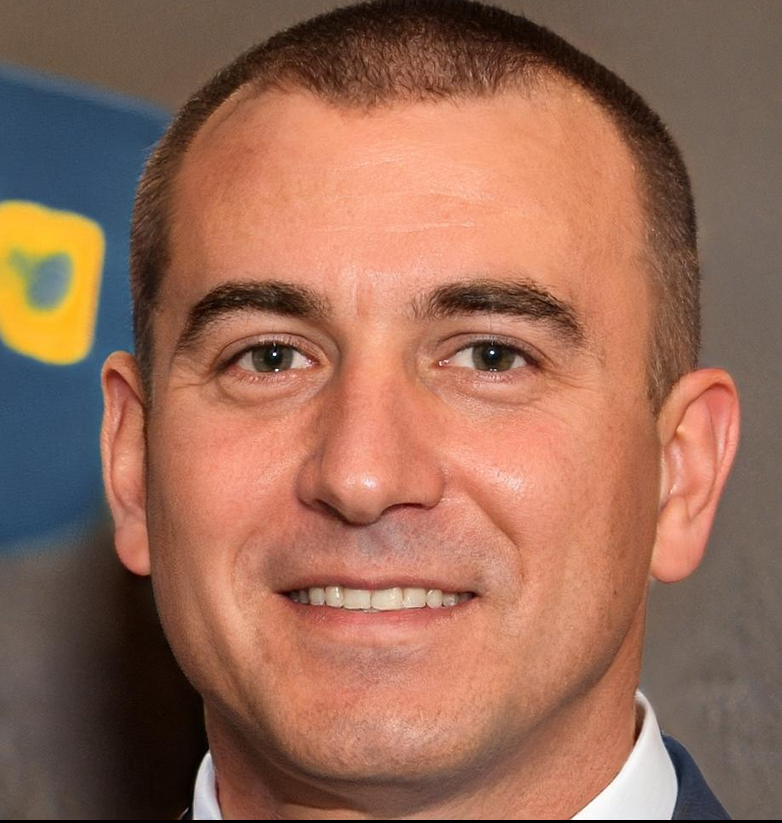
Don Schmidt
15+ years of experience in sleep therapy and Cognitive Behavioral Therapy for Insomnia (CBT-I). Passionate about connecting individuals struggling with sleep disorders to evidence-based, non-medical treatment solutions. Author of hundreds of articles and comprehensive guides on sleep health, CBT-I techniques, and overcoming insomnia. When not helping clients achieve better sleep, you can find me hiking with my family and dogs or enjoying a good book.
Ready to connect with a provider?
Allow us to connect you with a provider who can help.
